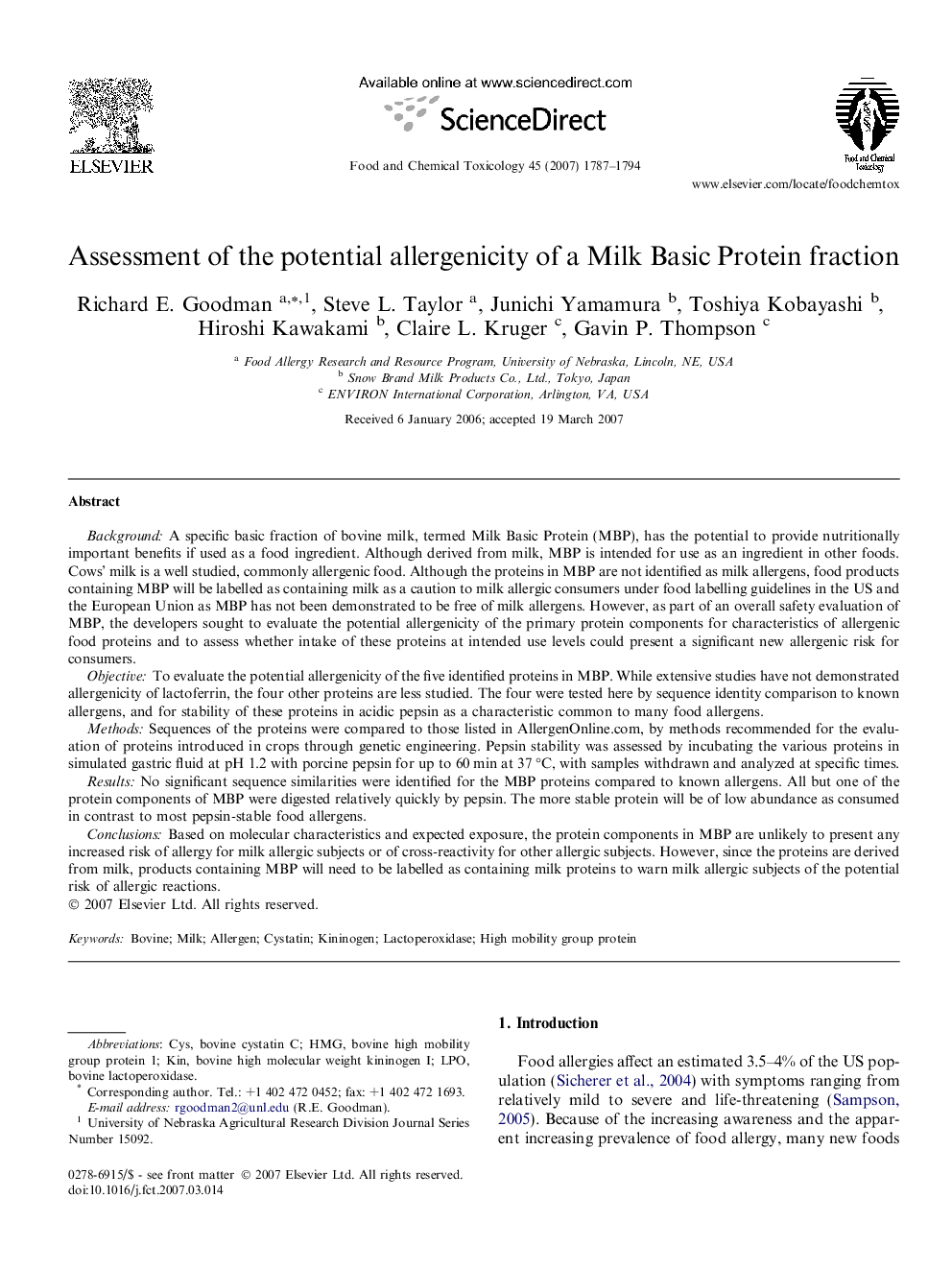| Article ID | Journal | Published Year | Pages | File Type |
|---|---|---|---|---|
| 2588065 | Food and Chemical Toxicology | 2007 | 8 Pages |
BackgroundA specific basic fraction of bovine milk, termed Milk Basic Protein (MBP), has the potential to provide nutritionally important benefits if used as a food ingredient. Although derived from milk, MBP is intended for use as an ingredient in other foods. Cows’ milk is a well studied, commonly allergenic food. Although the proteins in MBP are not identified as milk allergens, food products containing MBP will be labelled as containing milk as a caution to milk allergic consumers under food labelling guidelines in the US and the European Union as MBP has not been demonstrated to be free of milk allergens. However, as part of an overall safety evaluation of MBP, the developers sought to evaluate the potential allergenicity of the primary protein components for characteristics of allergenic food proteins and to assess whether intake of these proteins at intended use levels could present a significant new allergenic risk for consumers.ObjectiveTo evaluate the potential allergenicity of the five identified proteins in MBP. While extensive studies have not demonstrated allergenicity of lactoferrin, the four other proteins are less studied. The four were tested here by sequence identity comparison to known allergens, and for stability of these proteins in acidic pepsin as a characteristic common to many food allergens.MethodsSequences of the proteins were compared to those listed in AllergenOnline.com, by methods recommended for the evaluation of proteins introduced in crops through genetic engineering. Pepsin stability was assessed by incubating the various proteins in simulated gastric fluid at pH 1.2 with porcine pepsin for up to 60 min at 37 °C, with samples withdrawn and analyzed at specific times.ResultsNo significant sequence similarities were identified for the MBP proteins compared to known allergens. All but one of the protein components of MBP were digested relatively quickly by pepsin. The more stable protein will be of low abundance as consumed in contrast to most pepsin-stable food allergens.ConclusionsBased on molecular characteristics and expected exposure, the protein components in MBP are unlikely to present any increased risk of allergy for milk allergic subjects or of cross-reactivity for other allergic subjects. However, since the proteins are derived from milk, products containing MBP will need to be labelled as containing milk proteins to warn milk allergic subjects of the potential risk of allergic reactions.
